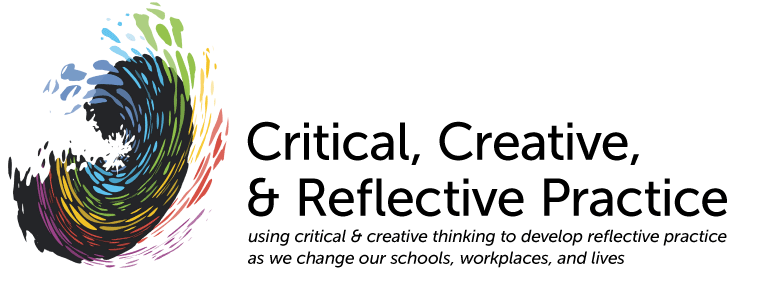Quotes and sources
Peter C. Taylor of Curtin University's Tranformational Education Research group says:
- transformative learning comprises five distinct but interconnected ways of knowing.
- • Cultural-Self Knowing (self realisation) involves coming to understand our culturally situated selves, in particular how the (mostly invisible) premises underpinning our worldview – our shared values, beliefs, ideals, emotionality, spirituality – give rise to our cultural identities and govern our habituated ways of being in, making sense of, and relating to our social and natural worlds.
- • Relational Knowing (opening to difference) involves learning to connect empathically and compassionately with our true (nonegoic) selves, our local community, the culturally different other, and the natural world.
- • Critical Knowing (political astuteness) involves coming to understand how and why (political, institutional, economic) power has structured historically our social realities by creating seemingly natural categories of class, race, gender, vocation, intelligence, etc., and how this mostly invisible power governs (especially distorts) our lifeworlds, our relationships with others, and our relationship with the natural world.
- • Visionary and Ethical Knowing (over the horizon thinking) involves us in creative, inspirational and discursive processes of idealising, imagining, poeticising, romanticising, meditating on and negotiating a collective vision of what a better world could be like and, importantly, what a better world should be like.
- • Knowing in Action (making a difference) involves consciously developing our capacity to help make the world a better place, committing to making a difference, and taking action locally while thinking globally.
- from "Transformative Science Teacher Education," to appear in Gunstone, R. (Ed.) (2013). Encyclopedia of science education. Dordrecht, The Netherlands: Springer
The Transformative Education Forum begins, however, not from knowing, but from Human Rights, supplemented by concerns for Sustainability, The Importance of Value Systems: Morality, Ethics and Spirit, Diversity, Economic and Social Justice/Equity, Peace Education and Conflict Resolution, and more -- see http://tef.globalchallengesforum.org/principles
Elias, quoted in wikipedia, puts a different slant again:
- Transformative learning is the expansion of consciousness through the transformation of basic worldview and specific capacities of the self; transformative learning is facilitated through consciously directed processes such as appreciatively accessing and receiving the symbolic contents of the unconscious and critically analyzing underlying premises.
Finally, in a less systematic way, the very first pass by one of the unnamed public educational institutions at defining a program:
- [It would] provide its students with knowledge, tools, and research experience to become constructive, reflective leaders in educational innovation, research, and community engagement around creative arts and design, media, facilitation, and pedagogical innovation. The rationale for a doctoral program in Creative and Transformative Education is that, after training and experience in their home fields, many experienced artists and professionals are ready to extend their reach so as to take well-researched and thoughtful roles in teaching, supporting, and collaborating with others to be creative and transformative in their own settings. By establishing creative habits, building a well-organized and sustainable studio or work space, and engaging in their field or community, creative and transformative practitioners make it possible to confront complex, messy, ambiguous problems, draw new connections, and see how things could be otherwise, to take risks and experiment in putting ideas into practice, then take stock of the outcomes and revise their approaches accordingly.
|
